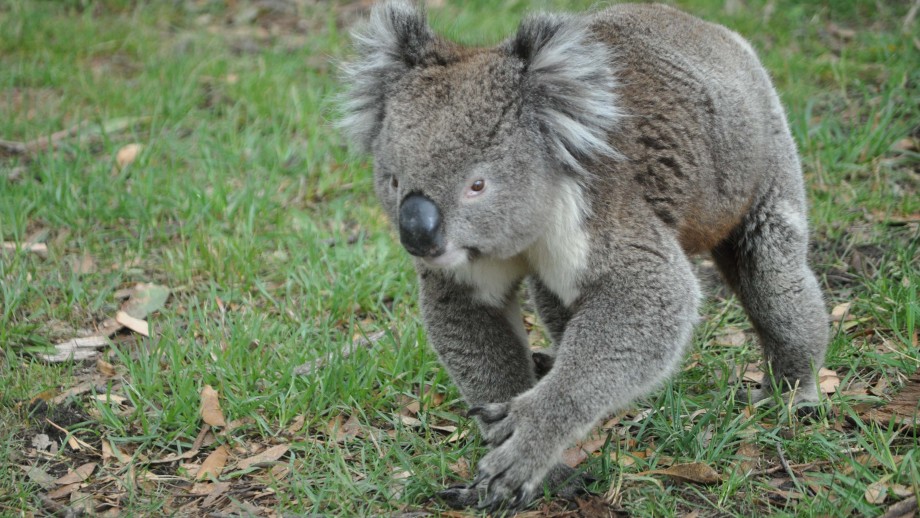Dick Smith backs plan for private leasing of wildlife
Landowners could do more to help protect vulnerable wildlife such as koalas and Tasmanian devils by leasing animals and giving them a home on private land under a proposal from an international study.
The plan could lead to koalas, Tasmanian devils, rock wallabies, bettongs and bandicoots being protected on private lands such as golf courses and hobby farms, and is receiving private-sector support including from businessman Dick Smith AC.
Lead researcher Adjunct Professor George Wilson from The Australian National University (ANU) said the new study proposed a trial where landholders, community groups and investors would lease wild animals to help save them from potential extinction.
"Business as usual for threatened species is not working - lists are getting longer and threats from predators and habitat loss are getting worse," said Dr Wilson, from the ANU Fenner School of Environment and Society.
"The private sector can help but it is shut out by government legislation that maintains control over both operations and ownership."
Mr Smith, who founded Dick Smith Electronics, said he supported the idea of the private sector leasing vulnerable wildlife.
"I believe this is a fantastic initiative and needs to be supported in every way possible," he said. "This is lateral thinking at its best. I support the initiative."
In some parts of the world - particularly southern Africa - ownership, price incentives, devolved responsibility for wildlife management and effective regulation had increased populations of iconic threatened species and helped to protect important habitats, Dr Wilson said.
"We need a way to reverse the situation whereby high-quality land and wildlife habitat has been taken over by individuals and organisations for agricultural and other commercial activities," Dr Wilson said.
"Landholders need incentives to provide the habitat that wildlife needs.
"But market incentives in Australia are constrained by current policies and laws, particularly in relation to the management and ownership of wildlife. It limits innovation and competition," he said.
Dr Wilson said the trial would aim to improve biodiversity value of degraded areas, increase the populations of threatened species and, where possible, improve connectivity between populations.
"The size of the conservation habitats on private lands would increase and so contribute more to national biodiversity targets," he said.
"Only one per cent of Australia's conservation land is privately owned, compared with 17 per cent in South Africa."
Under the trial, private landowners would be able to acquire threatened species from areas where they were overabundant, breed them and assist further colonisation.
Dr Wilson said koalas were listed as vulnerable in Queensland and New South Wales yet in other parts of Australia they were being sterilised to avoid overpopulation.
"Golf courses that have suitable trees and provide protection from dogs would welcome the opportunity to breed koalas," he said.
"The role of governments would be to regulate the leasehold arrangements and any animal welfare issues, rather than be the sole managers of wildlife.
"Although wildlife management in southern Africa has different aims, success there suggests that the approach is worth trialling in Australia."
Dr Wilson said the research team was seeking collaborators, including landholders and private sector organisations, to be involved in the trials.
"They should be able to acquire and breed threatened species in extensive predator-free facilities," he said.
"We are also inviting potential investors to support the trials, possibly through crowd funding."
The study is published in Conservation Letters.
Dr Wilson co-authored the paper with Dr Matt Hayward, from Nelson Mandela Metropolitan University in South Africa and Bangor University in the United Kingdom, and Mr Charlie Wilson, from Australian Wildlife Services.

